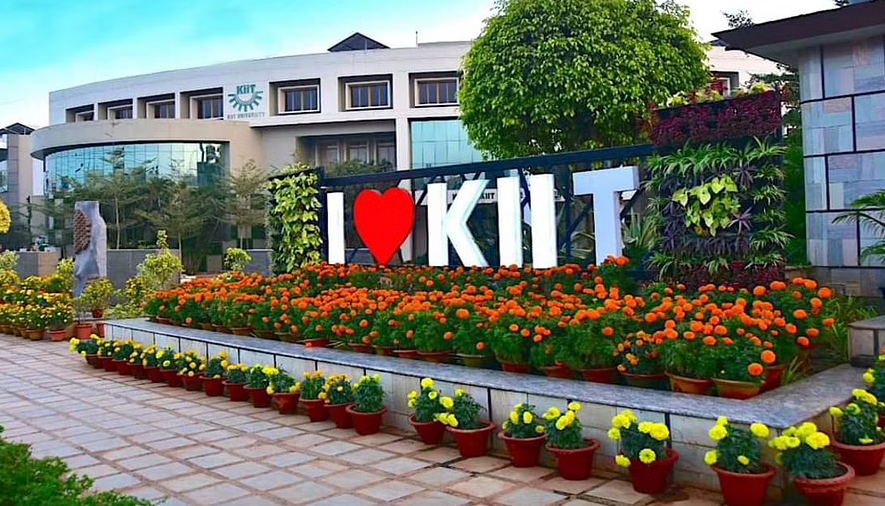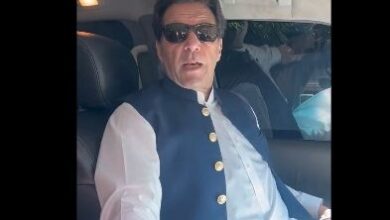With US Sixth fleet in Mediterranean supporting Israel: Palestine should not be all about destruction without any settlement

Mobilenews24x7 Bureau
With the continuing Western Complicity still intact and the Israel enjoying the luxury of military support and more so with the US Sixth Fleet in the Mediterranean the ongoing war seems from being over further aggravating the complicity.
A month after the large-scale attack by Hamas on Israel, resulting in the killing of some 1,400 civilians that evoked an armed offensive from Israel on Gaza, the conflict in the Middle East has predictably escalated with Israel preparing to militarily ‘eliminate’ Hamas overcoming the challenge posed by the extensive underground network of caves built by the group for use as bunkers in a military confrontation, Iran-backed Hezbollah declaring that it is fully prepared to join in the combat in support of Hamas and the US extending military support to Israel through its Sixth fleet in the Mediterranean.
The Arab states seemed to be watching the situation, divided as they are between the anti-US radical forces represented by Syria, Yemen, and Qatar and those like Saudi Arabia, UAE and Bahrain — fundamentalist but deeply aligned with the US. This showed up on expected lines considering that Hamas has over the years of the US-led ‘war on terror’, become a front of Islamic radicals though it originated in the mould of anti-Left pro-Islamic State organisations like Muslim Brotherhood of Hasan Al-Banna in Egypt and Syria, and Jamaat-e-Islami of Maulana Maududi in undivided India, with no hostility towards the West.
The Arab Spring of 2011 marked a general shift in the Muslim world towards a hardline Islamic dispensation in replacement of personal dictatorships. In Egypt, it had the imprint of the Muslim Brotherhood and initially, the US welcomed the ouster of Hosni Mubarak for that reason. However, the forces behind the Arab Spring drifted towards the revivalist call of going back to the times of the Pious Caliphs and found no fault with radicalisation and the terrorist violence that went with it, causing discomfiture to the West.
The present regime in Egypt headed by President Abdul Fattah El Sisi favours Islam but not its radicalisation and is in the good books of the US.
Radicalisation incidentally finds acceptance in countries like Pakistan, Turkey, and Malaysia that rode two horses by trying to be on the right side of the US while supporting Taliban, Al-Qaeda and ISIS.
Developments in the Middle East revolving around the Israel-Hamas confrontation seemed to be accentuating these alignments within the Islamic world.
In his first open response since Hamas attacked Israel on October 7, Hassan Nasrallah, head of the powerful Hezbollah movement, told the press in Beirut that ‘America was entirely responsible’ for the ongoing war, termed Israel as a mere tool of execution of the US strategy and warned that ‘all options’ were open to respond ‘decisively’ to the extension of the conflict to Lebanon.
He was speaking in the background of some skirmishes on the Lebanese border. Nasrallah asked the Americans to immediately stop the aggression if they did not want ‘a regional war’, saying that the US fleet in the Mediterranean ‘does not scare us’ and that ‘we are ready to face it’. Hassan repeatedly talked of the ‘war in the region’ that ‘would make the US soldiers pay’.
Hezbollah along with the armed groups from Iraq, Syria and Yemen represents a regional Iran-led ‘axis of resistance’ against the US and Israel. Israeli Prime Minister Benjamin Netanyahu has again warned Hezbollah that if it joined the war ‘that would be the mistake of life for it’.
Remarks of the Hezbollah chief appeared defensive in as much as they referred only to regional dimensions of the conflict and did not talk of any larger global threat. Iran already in conflict with the US would — it seems — not like to get directly involved in the Hamas-Israel military confrontation.
Meanwhile, it has taken a month for Israel Defense Forces to reach ‘the heart of Gaza city’ described by Israel’s Defence Minister Yoav Gallant as the ‘largest terrorist base ever built’. He repeated Israel’s determination ‘to destroy Hamas’.
Prime Minister Netanyahu reiterated that there would be no ceasefire till hostages held by Hamas were released. Seen in the backdrop of US Secretary of State Antony Blinken’s statement at Ankara that the release of hostages was the ‘prime concern of the US’, it would appear that Hamas was expected to use hostages to leverage its position.
Netanyahu has talked of a ‘tactical pause’ to work out the release of hostages while the US President has struck a note of restraint by asking Israel not to ‘reoccupy Gaza’. Israel is apparently planning to surround Gaza in a manner that Hamas militants may be compelled to release hostages in spite of the use of tunnels by them for ‘guerilla’ warfare.
A deterrence for anti-Israel forces in the Middle East is the clear message given by President Biden that the US was going to be fully behind Israel in the event of the conflict escalating into a regional war. His reference to the India-Middle East-Europe Economic Corridor and mention of Israel’s stakes in it has elevated American involvement in the region to a level where it is a part of the geopolitical strategy of the US to counter the initiatives China had been advancing to enhance its foothold in the Middle East.
It is here that the Arab block led by Saudi Arabia has to play an effective role in checking the spread of radicalisation in the region. India’s strategic interests leave little doubt about which side of the fence this country should be on, in the event of Islamic radicals advancing their hold in the Muslim world.
The challenge before Israel is to put down Hamas and its terror infrastructure without causing too much collateral damage and certainly without putting large sections of the civilian population in extreme distress. It is typically a challenge for any army that faces the adversary in an asymmetric war.
Permitting supplies and medical aid for displaced people in Palestine is important given the fact of this conflict in all likelihood getting protracted into a war of attrition.
The US and its allies must keep the prospect of a two-state solution in Palestine open and work for a significant number of Arab states recognising the existence of the state of Israel. The conflict of religions should be moderated into a political dispute that requires a different set of ‘gives and takes’. India finds this kind of solution finding closer to its own interests and the interests of the world.
The success of its G20 Presidency should enable India to back a position that sat well with the principles of humanitarian good, no resort to ‘wars’ and terrorism and the promotion of world peace. The US is cognisant of the attempts of China to exploit the Israel-Hamas conflict to boost its influence in West Asia and draw in the radical forces there into its political orbit — its new equation with the Taliban Emirate at Kabul illustrates this in ample measure.
American policymakers, however, need to become realistically aware of the role of the Sino-Pak axis in weakening the cause of the democratic world order. As already mentioned Pakistan, Turkey and Malaysia seem to have developed a convergence on accommodating radicals and not toeing the US line on the Middle East.
The Israel-Hamas conflict like the earlier military confrontation between Ukraine and Russia is a development that India has to take into account while formulating its own strategy of safeguarding national interests.
It is significant that Russia is joining the universal effort to rush food and medical supplies to Gaza for the people there and that the US also wants neither Israel nor Hamas to create any impediment in the same.
Israel would surely expect the world to see that terrorism had to be defeated and not permitted to put the lives of innocent civilians in jeopardy.
The deeply religious angle in the Israel-Palestine conflict has to be sorted out through the path of inclusivity and respect for all faiths without bringing in notions of ‘supremacism’ of one religion.
The communal interpretations of Israel-Hamas confrontation has had a certain fallout in the Muslim world, including the subcontinent, where the historical memories of the anti-West Wahabbi Jehad of the 19th century, Khilafat movement of later times and the strong currents of pan-Islamism in the 80’s promoted by the OIC under the chairmanship of Saudi Arabia, have all conditioned the thinking of Muslims guided by the Ulema and the communal-minded elite.
Indian democracy must continue to derive strength from nationalism, its built-in secularism and the Modi regime’s vision of ‘world is one family’. Intelligence updates on any adverse fallout of the Israel-Hamas conflict on our national security, including the situation in Kashmir are important.
The Hamas-Israel tussle in the Middle East and the earlier Ukraine-Russia military conflict in East Europe are leading to a new divide between the democratic world and the autocratic regimes — ideological or faith-based.
Unlike in the Cold War, however, there is multipolarity at play and much greater freedom for the countries to choose sides. Today India and the US stand closer to each other than at any time in the past because of the mutuality of interests and a newfound convergence on what was good for the world.
In the 2-Plus 2-Dialogue held between the US and India last week — the first major event after the success of the G20 summit at Delhi — the two global powers pursued a mutually beneficial line notwithstanding the nuanced position India has taken on both Israel-Hamas and Ukraine-Russia confrontation.
Diplomacy today requires a lot of ideation and the capacity to evolve an assimilative approach to disparate geopolitical developments.
India is presently well-equipped on this front.
Both the US and India have expressed support for ‘humanitarian pauses’ agreed to by Israel and pledged to continue diplomatic coordination with key partners in the region to work for a durable political solution.
Prime Minister Narendra Modi’s reaching out to Iranian President Ebrahim Raisi demonstrates India’s role as a global power working for world peace.
Yet the latter’s posturing at the outset openly saying that India stands by Israel, this initiative appear quite contradictory.
The conflict in Gaza is compelling the Muslim world to face the reality of choosing between a US-led dispensation and a Chinese-sponsored grouping.
Russian civilian aid to Gaza, Iran’s stance of not directly becoming a party to the Israel-Hamas confrontation and the US advice to Israel not to ‘cross a line’ while chasing Hamas in Gaza, all lead to a possibility that this time around, the world may move towards finding a stable political outcome of the Palestinian issue based on rejection of terrorism as an instrument of politics and a non-sectarian solution in which states of Israel and Palestine lived as peaceful neighbours, with well-defined borders.
With inputs from agencies






